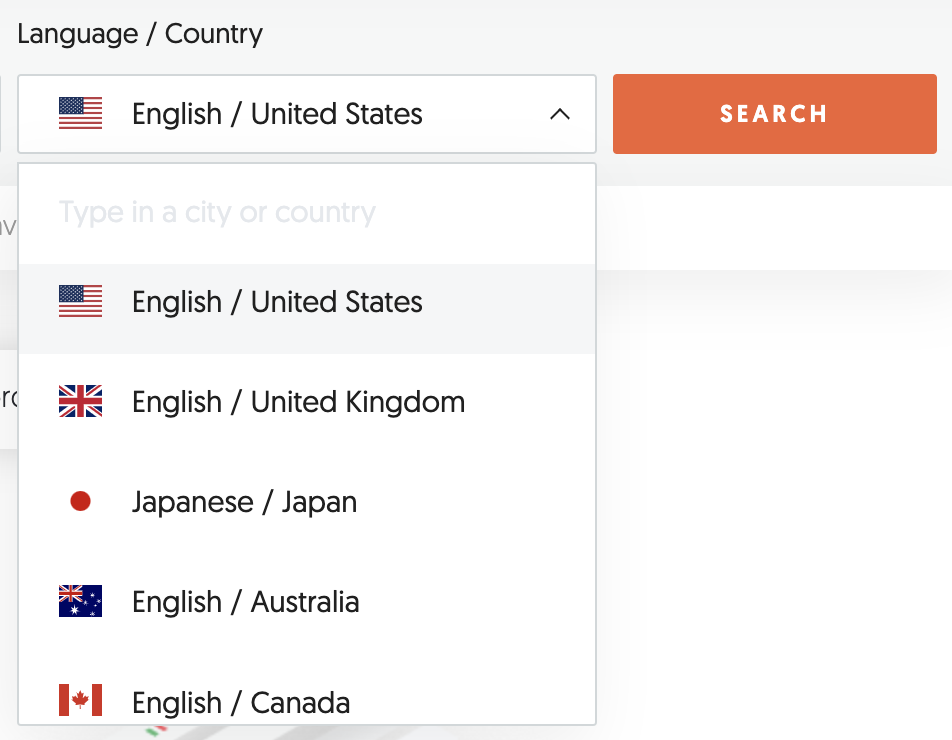Release Your Brand name's Potential Worldwide: International SEO Insights
Release Your Brand name's Potential Worldwide: International SEO Insights
Blog Article
Browsing the Digital Landscape: Leveraging International SEO for Cross-Border Success
In today's interconnected electronic world, services are increasingly looking past borders to touch into international markets. Leveraging search engine optimization (SEARCH ENGINE OPTIMIZATION) methods tailored for international audiences is important for achieving cross-border success. The intricacy of browsing the digital landscape on a global scale demands a nuanced approach, from comprehending the basics of International search engine optimization to carrying out geotargeting and multilingual key words methods. As business aim to broaden their reach and exposure across different areas, optimizing web site structures and checking cross-border efficiency become crucial components of a successful global SEO method.
Comprehending International SEO Principles
Browsing the complexities of global SEO calls for a strong grasp of essential principles to properly broaden on the internet visibility throughout borders. One crucial facet of worldwide SEO is understanding the importance of localization.
Additionally, having a clear understanding of geo-targeting is vital. This entails showing to internet search engine the particular nations or areas a website is targeting. Carrying out hreflang tags is one means to communicate this information, making certain that the appropriate version of a webpage shows up in the search engine result for a user in a certain location.
In addition, comprehending the influence of regional online search engine and social media systems is vital for global search engine optimization success. As an example, while Google is leading in many areas, countries like China have their very own search engines like Baidu, calling for customized methods for each platform to maximize on-line exposure.

Targeting Multilingual Keyword Phrase Approaches
Establishing multilingual key words strategies is crucial for successfully reaching varied worldwide target markets and making best use of on the internet visibility throughout different etymological areas. When targeting multilingual keyword approaches, it is critical to perform thorough research study to comprehend the details search terms and phrases made use of by the target market in each etymological area. This involves not just equating keywords but additionally taking into consideration cultural subtleties, local languages, and search fads unique to every target market.
To create an effective multilingual search phrase technique, it is necessary to focus on importance and search intent. Search phrases need to line up with the material on the site and resonate with the social context of the target audience. Utilizing devices such as Google Search Phrase Coordinator, SEMrush, or Ahrefs can aid recognize high-performing keyword phrases in different languages and analyze their search volume and competitors level.
Moreover, surveillance and assessing the efficiency of multilingual search phrases regularly is essential for optimizing description and refining the approach in time. By constantly adjusting to modifications in search actions and fads, organizations can boost their online presence and attract even more international web traffic to their sites.
Carrying Out Geotargeting and Hreflang Tags
When aiming to improve international search engine optimization techniques, incorporating geotargeting and hreflang tags is vital for maximizing website presence across different areas. Geotargeting entails tailoring material to particular areas, making certain that users in different areas obtain pertinent info. By carrying out geotargeting, services can boost their regional search positions and bring in region-specific website traffic.

Optimizing Web Site Structure for International Exposure
To further boost worldwide SEO techniques past geotargeting and hreflang tags, maximizing the website framework is essential for attaining worldwide visibility and making the most of reach across various regions. A well-structured web site not only enhances individual experience however additionally helps with search engine crawlers in recognizing the content and context of the website.
Additionally, developing language-specific subdirectories or subdomains can help browse engines provide the best variation of the internet site to customers based upon their language preferences, better enhancing the general user experience. Additionally, enhancing URL frameworks to include appropriate key phrases and geotargeted terms can enhance the website's exposure in different regions. By structuring the web site properly for worldwide target markets, services can boost their opportunities of drawing in international website traffic and increasing their reach across borders.

Tracking and Analyzing Cross-Border Performance
Reliable tracking and analyzing of cross-border performance is essential for assessing the success of worldwide search engine optimization approaches and recognizing possibilities for enhancement in international reach and visibility. By carefully tracking key performance indications (KPIs) across different markets, companies can get valuable understandings into the effectiveness of their cross-border search engine optimization initiatives. Keeping track of metrics such as organic traffic, keyword positions, conversion rates, and bounce rates can provide a thorough view of exactly how well a site is executing in numerous areas.
By contrasting efficiency across different countries, regions, or languages, companies can identify effective techniques and localize material to better provide to details target audiences (International SEO). Normal evaluation of SEO efficiency on a global range makes sure that companies can adjust their techniques swiftly to capitalize on arising opportunities and maintain an affordable side in global markets.
Verdict
To conclude, worldwide search engine optimization plays an essential role in achieving cross-border success by optimizing internet sites for global visibility, targeting multilingual search phrase techniques, implementing geotargeting and hreflang tags, and keeping imp source an eye on cross-border efficiency. By recognizing the principles of global search engine optimization and optimizing site frameworks accordingly, services can efficiently get to and involve with their target market throughout various areas and languages. This critical strategy is vital for increasing market reach and driving on the internet development in today's digital landscape.
Report this page